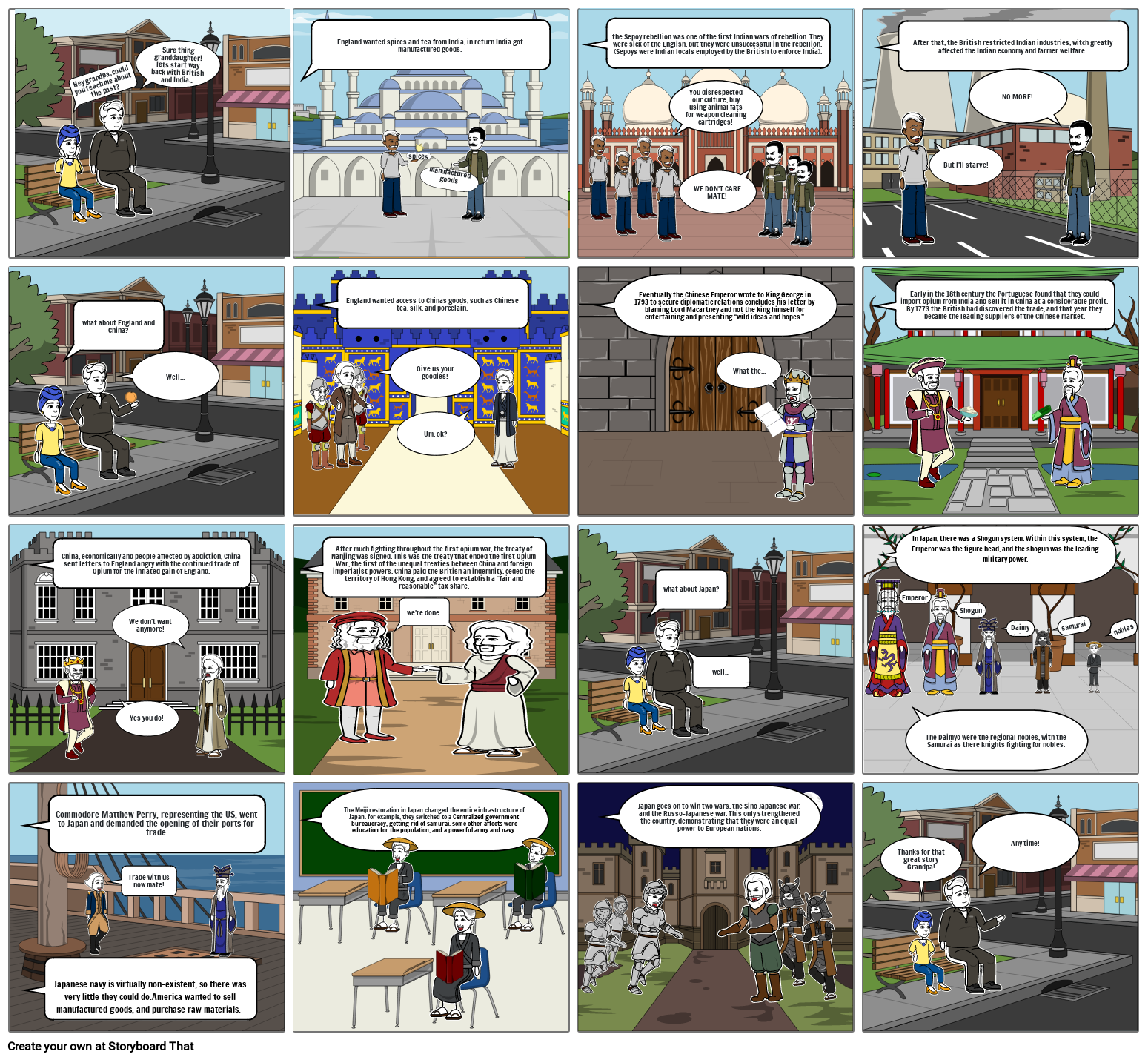Unknown Story

Süžeeskeem Tekst
- Hey grandpa, could you teach me about the past?
- Sure thing granddaughter!lets start way back with British and India...
- England wanted spices and tea from India, in return India got manufactured goods.
- spices
- manufactured goods
- the Sepoy rebellion was one of the first Indian wars of rebellion. They were sick of the English, but they were unsuccessful in the rebellion. (Sepoys were Indian locals employed by the British to enforce India).
- You disrespected our culture, buy using animal fats for weapon cleaning cartridges!
- WE DON'T CARE MATE!
- After that, the British restricted Indian industries, witch greatly affected the Indian economy and farmer wellfare.
- But I'll starve!
- NO MORE!
- what about England and China?
- Well...
- England wanted access to Chinas goods, such as Chinese tea, silk, and porcelain.
- Give us your goodies!
- Um, ok?
- Eventually the Chinese Emperor wrote to King George in 1793 to secure diplomatic relations concludes his letter by blaming Lord Macartney and not the king himself for entertaining and presenting “wild ideas and hopes.”
- What the...
- Early in the 18th century the Portuguese found that they could import opium from India and sell it in China at a considerable profit. By 1773 the British had discovered the trade, and that year they became the leading suppliers of the Chinese market.
- China, economically and people affected by addiction, China sent letters to England angry with the continued trade of Opium for the inflated gain of England.
- We don't want anymore!
- Yes you do!
- After much fighting throughout the first opium war, the treaty of Nanjing was signed. This was the treaty that ended the first Opium War, the first of the unequal treaties between China and foreign imperialist powers. China paid the British an indemnity, ceded the territory of Hong Kong, and agreed to establish a “fair and reasonable” tax share.
- we're done.
- what about Japan?
- well...
- In Japan, there was a Shogun system. Within this system, the Emperor was the figure head, and the shogun was the leading military power.
- Emperor
- The Daimyo were the regional nobles, with the Samurai as there knights fighting for nobles.
- Shogun
- Daimyo
- samurai
- nobles
- Commodore Matthew Perry, representing the US, went to Japan and demanded the opening of their ports for trade
- Japanese navy is virtually non-existent, so there was very little they could do.America wanted to sell manufactured goods, and purchase raw materials.
- Trade with us now mate!
- The Meiji restoration in Japan changed the entire infrastructure of Japan. for example, they switched to a Centralized government bureaucracy, getting rid of samurai. some other affects were education for the population, and a powerful army and navy.
- Japan goes on to win two wars, the Sino Japanese war, and the Russo-Japanese war. This only strengthened the country, demonstrating that they were an equal power to European nations.
- Thanks for that great story Grandpa!
- Any time!
Loodud üle 30 miljoni süžeeskeemi

